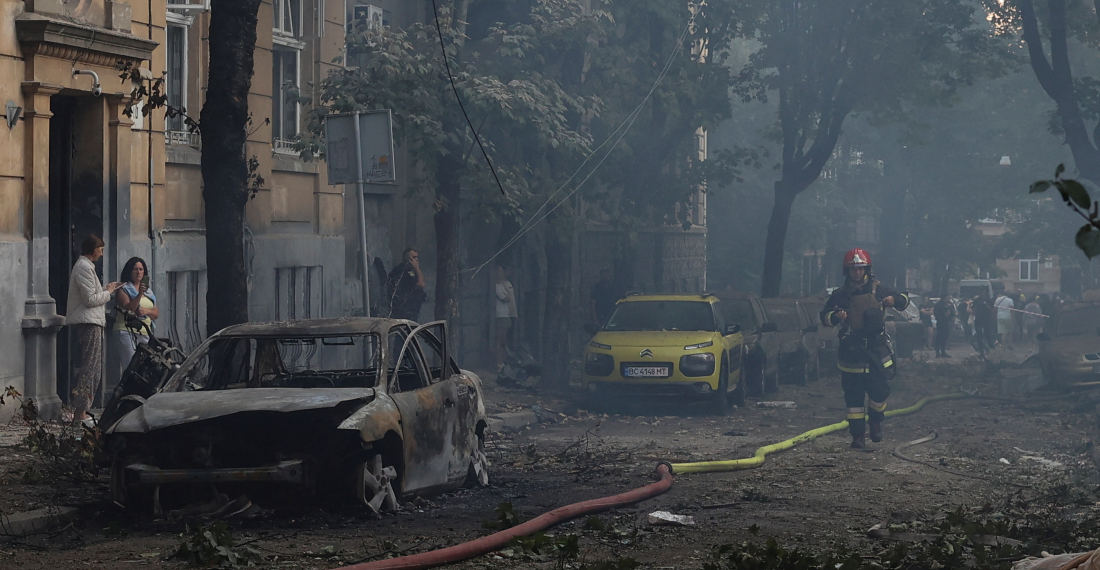A major Russian air strike on Lviv, a city in western Ukraine near the border with NATO member Poland, killed seven people, wounded more than 30 and caused extensive damage to historic buildings in the city centre, regional officials said on Wednesday (4 September). The attack came a day after Russia's deadliest single attack this year, when two ballistic missiles hit a military institute in the central Ukrainian city of Poltava, killing 50 people and injuring hundreds more. Meanwhile, neighbouring Poland scrambled jets to secure its airspace for the third time in eight days.
Russia also launched missile strikes on Kyiv and several other regions on Wednesday (3 September), though no immediate damage was reported. Over the past 10 days, Russia has stepped up its missile and drone attacks on Ukraine, in what some Russian military bloggers say is Moscow's response to a recent Ukrainian incursion into Russian territory. Moscow has not yet commented on the attacks in Poltava or those on Lviv and Kyiv. Russia often claims that its strikes are aimed at Ukraine's military, energy and transport infrastructure rather than civilians.






